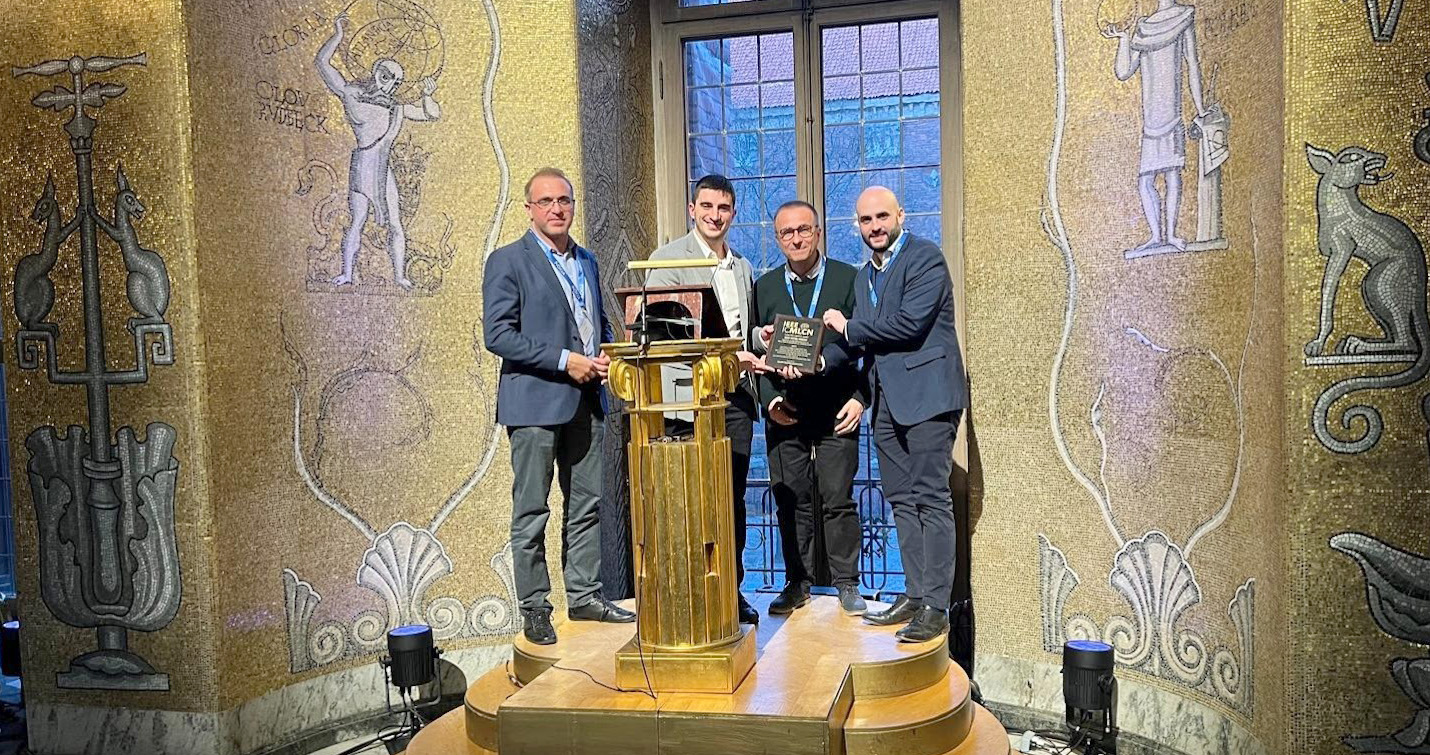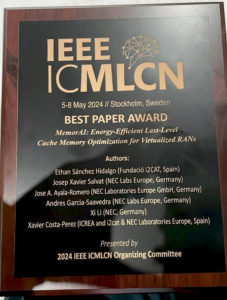
Keep up to date with our innovative initiatives.
Sign up here
A scientific article led by researchers from the AI-Driven Systems area of the i2CAT Foundation, Xavier Costa and Ethan Sánchez, has won the “Best Paper Award” during the IEEE International Conference on Machine Learning for Communication and Networking 2024 (IEEEICMLCN), held in Stockholm (Sweden) between 5 and 8 May. The IEEE ICMLCN is one of the most important international conferences on Machine Learning and telecommunications networks. Each year brings together researchers from all over the world to jointly promote fundamental and applied research in this field.

The study, entitled “MemorAI: Energy-Efficient Last-Level Cache Memory Optimisation for Virtualised RANs”, investigates different cache memory allocation mechanisms to reduce the energy consumption of a virtualised radio access network (vRAN) platform. The vRAN is a telecommunications architecture that consists of separating the components of a telecommunications base station to allow greater flexibility in the allocation of network resources according to traffic demand. Thanks to these networks, which play a central role in developing advanced 5G services, operators can adapt processing capacity in real-time and allocate more resources when demand increases or reduce them when demand decreases.
 “Virtualisation of radio access networks (vRAN) is on its way to becoming a reality, driven by its advances such as flexibility and infrastructure-level performance. However, virtualisation comes at a high price: virtual base stations (vBS) sharing the same computing platform are incorporated into a significant overcapacity due to the in extremis consumption of shared cache memory resources. Consequently, the vRAN suffers from higher energy consumption, which fuels the already high operating costs of 5G networks”, the authors explain in the paper.
“Virtualisation of radio access networks (vRAN) is on its way to becoming a reality, driven by its advances such as flexibility and infrastructure-level performance. However, virtualisation comes at a high price: virtual base stations (vBS) sharing the same computing platform are incorporated into a significant overcapacity due to the in extremis consumption of shared cache memory resources. Consequently, the vRAN suffers from higher energy consumption, which fuels the already high operating costs of 5G networks”, the authors explain in the paper.
Using an experimental vRAN platform, i2CAT researchers demonstrate in the study how applying different mechanisms for allocating the resources of the cache memory can significantly reduce its total energy consumption. One of these mechanisms, developed by several researchers, is a system based on artificial intelligence for strategically allocating these resources. The system, called MemorAI, integrates a digital bessó and a neural networks classifier that allows an optimised performance of the vRAN platform and high energy saving compared to other strategies developed so far. “The strategic allocation of cache memory resources is key to minimising computational usage and, therefore, energy consumption,” explain the researchers, “Our results show the great energy storage potential of MemorAI, which we managed to store up to 1 kilojoule (KJ) compared to currently available solutions,” concludes Xavier Costa.